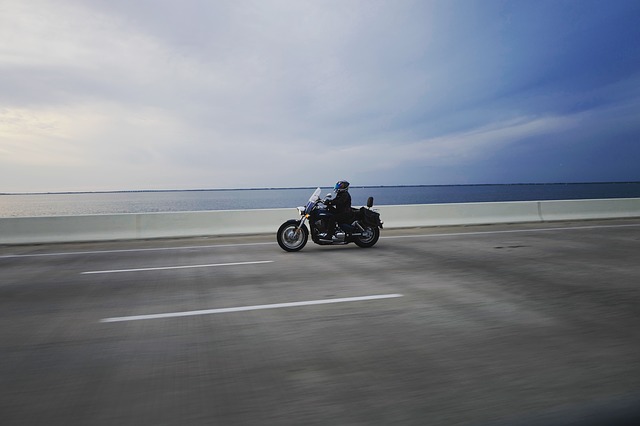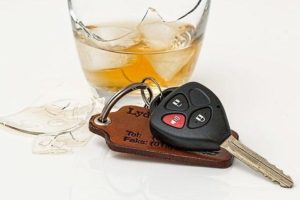Motorcycle trip planning is often as much fun as the trip itself! After all, motorcycle riders are an adventurous bunch, and we love nothing more than going off the grid for a few days (weeks!) and traveling the open roads. Although I could write for days about all the considerations that should be put into preparing for a motorcycle trip, this entry will serve to highlight some of the most important factors that should be made, whether you are staying local or going on a cross country motorcycle trip.
Map Out Your Trip with a Motorcycle Route Planner
Although I love the idea of just hopping on my bike and riding off into the sunset, I have found that the best trips occur when I take the time to map it out first. Most bikers have a general idea in their mind of where they want to go, even if It is just a general direction.
There are a number of great sites like Motorcycle Roads that allow bikers to enter their location and destination and find great roads and rides along the way. In addition, you can discover great events that occur during the time you travel.
Use an app to either program your route or, at least, program your planned stops along the way. Eat Sleep Ride is an outstanding app that allows bikers to plan and share their route, track a group ride, and more. The app even allows you to replay your rides, with features like speed, lean angle, and elevation that allow you to reminisce on your cross country motorcycle
trip. You can also share your photos along the way, as well as check out photos from other bikers. What more can you ask for from a free app? No matter which app you choose, set up some stops along your route to see the sights, visit with family and friends, or just relax and take it easy.
For a free legal consultation,
call 1-800-668-6729
How Much Can I Ride My Motorcycle Each Day?
When planning a trip, many bikers wonder how much they can ride each day. This depends on your type of travel. Some bikers enjoy a more leisurely trip. They want to stop for meals at restaurants, visit with local bikers, and take in the scenery and sights along the way.
Other bikers are all about making the distance and would rather spend time on the bike than off it exploring their surroundings. It is all a matter of personal taste. Most bikers aim for between 200-300 miles per day, this gives you a good mix of time both on and off your motorcycle. If you want to push the limits, go for 300-400 miles a day. But keep in mind that fatigue can set it and make it difficult to endure riding that many miles day after day.
Hotels, Motels, and More
Now that you have a destination and a daily mileage amount in mind start looking for your accommodations. There are a number of sites online that allow you to search for and quickly locate hotels and motels throughout the world.
Remember, however, to check out the reviews before you commit to an accommodation. Although most hotels and motels across the country offer welcoming rooms, some are not so well-kept. Be sure that others who have stayed before you have positive things to report.
You can save a bunch of money by deciding to camp rather than staying at a hotel. Campgrounds vary tremendously, however, so do your homework. Some offer wifi, hot showers, and have an on-site café or restaurant. Others are barebones with little more than a bathroom and a place to set up a tent. If you choose to stay at a campground, be sure you know how to pay if you show up after hours.
Click to contact our personal injury lawyers today
What Should I Pack for my Cross Country Motorcycle Trip?
When doing your motorcycle trip planning, it’s critical to pack light. After all, your pack will be riding with you. There are several essentials you should have with you. Pack a jacket, even if you are traveling in warmer weather. Cool evening and early morning winds make for brisk traveling conditions, and light rain or even just a mist can give you a chill as you ride.
Remember to carry some cash with you as some places out in the country still don’t accept debit or credit cards. Take your cell phone, but have a backup map available in case your battery dies. And bring a backup cell phone battery, as well as an extra phone charging cable.
A tire plug kit is a necessity, as it can prevent you from being stranded in the middle of nowhere if you get a flat. Also, bring waterproof bags for your clothing and belongings as well as bungee cords to secure any baggage to your bike.
Don’t forget any necessary documents like your license, insurance card, and roadside assistance information. Finally, be sure to bring a few energy bars or high-calorie snacks and some water. You never know when you may end up stranded somewhere or just out of range of a restaurant or gas station. It’s always good to have ample supplies on hand.
Remember all these items for your trip are in addition to your regular motorcycle gear like your helmet, earplugs, gloves, and boots. Also, don’t forget a camera if your phone’s camera is not adequate. You will surely want to capture pictures of your surroundings and the friends you meet along the way.
Complete a Free Case Evaluation form now
Fuel – Both Gas and Food
No matter where you choose to go on your cross country motorcycle trip, you will need fuel for both your bike and your body. Remember that motorcycles have limited ranges based on their fuel capacity and plan accordingly. If you are riding in an isolated area, do not let your tank get too low. You never know when you will come to the next gas station, and you do not want to be stranded in the middle of nowhere. Check out Google Maps for gas stations in your area.
Just as your motorcycle needs fuel, so do you! As you travel on your motorcycle, be sure to make regular pit stops for food, drink, and bathroom breaks. Urban and suburban areas have fast-food joints and diners on every corner. But if you are traveling in a rural area, you may have to settle for the local fare. Don’t be afraid: these adventurous stops at hole-in-the-wall restaurants can result in some excellent meals! Just remember to keep some snacks and water on hand in case you are hungry and not located near a restaurant.
Remember, too, that regular stops are good for your body and your mind. After we ride for a while, our minds start to settle into our surroundings and we become less aware of things around us. Regular stops helped you to remain alert and focused on your trip. Some of us older folks (and even the not-so-old folks) tend to get a little stiff during long rides.
Stopping periodically gives you time to stretch out and relieve the stresses that biking puts on your body. If you are prone to back aches on your bike, take advantage of this time to pop a couple anti-inflammatory tablets. Your back will thank you when you settle in for the night.
And finally, before you begin your cross country motorcycle road trip, add 1-800-MOTORCYCLE to your cell phone. If you are involved in a motorcycle crash, call this number immediately to speak to an experienced motorcycle crash lawyer. The experienced lawyers at Kass & Moses can help you understand how to recover financially from your losses.
The insurance companies first priority is their own bottom line, so it is essential to have someone on your side who knows how to navigate the compensation process. When you call 1-800-MOTORCYCLE, you will be given a free consultation with an experienced lawyer who can help you understand how to handle your case.
Ride safe, enjoy your trip, and take plenty of pictures along the way! Then, share your pictures on our Facebook page.
Call or text 1-800-668-6729 or complete a Free Case Evaluation form


